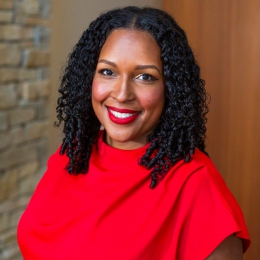5 Tips for Managing Your Budget
Posted On: August 1, 2024 in: Financial Education

Life happens. And some of life’s most unexpected expenses can derail into your budgeting strategy. Fortunately, by staying engaged with your budget and being flexible, you can be prepared for those unexpected or additional costs.
Here are five tips for managing your budget to keep your savings on track for life’s rewarding and surprise expenses.
Tip 1: Prepare for the unexpected.
If you were without your income for six months, would you be able to cover your expenses?
That’s the goal. You want to try to have enough savings for at least three to six months.
Ask yourself, “If the unexpected were to happen, how much would I have available to ensure I’m able to live without being worried?” It could prevent a lot of stress in the future.
Tip 2: Find a savings plan that matches your goals.
A common misconception with banking is that you can only have a checking and/or a savings account. In reality, there are different types of products that can be matched to your needs for short-term (i.e., a savings account) vs long-term (i.e., a Certificate of Deposit, CD) savings goals.
For example, at Park Bank you can create separate checking and savings accounts and name them something specific (e.g., “Vacation Fund” or “Rainy Day Fund”), so when you’re on our app, you can see the name of that account and make contributions to it.
If you have a certain amount (let’s say $1,000) you want to save and know you won’t need access to those funds for a certain period (let’s say 12 months), a Certificate of Deposit (CD) is a great option to accelerate your savings. A CD is generally going to have a better return rate than a regular savings account.
Also, while you’re earning a little more on the $1,000 in your 12-month CD, you can still actively contribute to a separate savings account all year.
Tip 3: Stay on top of your account with alerts.
Another thing you should do is set up alerts on your account(s) to track your spending in real time. At Park Bank, we have Notifi. At any time, you can get an alert letting you know, for example, that a transaction has cleared.
This does two things:
- It helps to prevent fraud on your account.
- It’s a great reminder, maybe you have subscriptions that you forgot to cancel that you no longer need.
Tip 4: Saving for something specific? Talk to your banker.
For example, let’s say you’re saving for a wedding. That’s where I would pause and ask a few questions:
- “What are some of the specific things you’re saving for?”
- “How would you like to pay for that?”
- “When do you need the funds?”
- “What do you have saved currently?”
- “How much more do you need to meet your goal?”
- “Comfortably, how much can you save before we need to consider a loan product?”
Your banker can help guide this discussion. Even if you haven’t thought about the total, talk to your banker about your most important expenses, getting to that number, and setting a realistic goal to help contribute.
At the end of the day, we want to support what’s most effective for your financial picture.
Tip 5: Figure out a debt payoff strategy that works for you.
Your debt payoff strategy depends on your goal.
Obviously, if you have things like car payments that you’re able to make additional payments to, yes, consider and paying it off.
If you have credit cards, always pay more than the minimum and make an additional payment whenever you can. That goes for your mortgage, too. The savings over the life of the loan can be significant.
Most important, pay on time. And if you get an unexpected bonus, know where to use it to better position yourself financially.
If you’re looking for more information on paying off your debt, start here.
Building a healthy relationship with your finances and checking in on those finances regularly will help you to achieve your goals, whatever they may be. Don’t hesitate to reach out to your banker for guidance and a second set of eyes. The more that you build confidence, have a relationship, and feel comfortable with your finances, the better.
What’s important is that no matter where you are in your financial journey, know that someone can help support you as you’re reaching those goals. At Park Bank, we’re big on building personal relationships with our clients.
Let’s get your personal finances to next!
About The Author: Suzanne Johnson serves as First Vice President Branch Banking at Park Bank. Johnson joined Park Bank in February of 2018 and has over 20 years of professional banking experience in the Madison area. If you’d like to get in touch, please reach out to Suzanne via email or call her at 608.278.2883.

